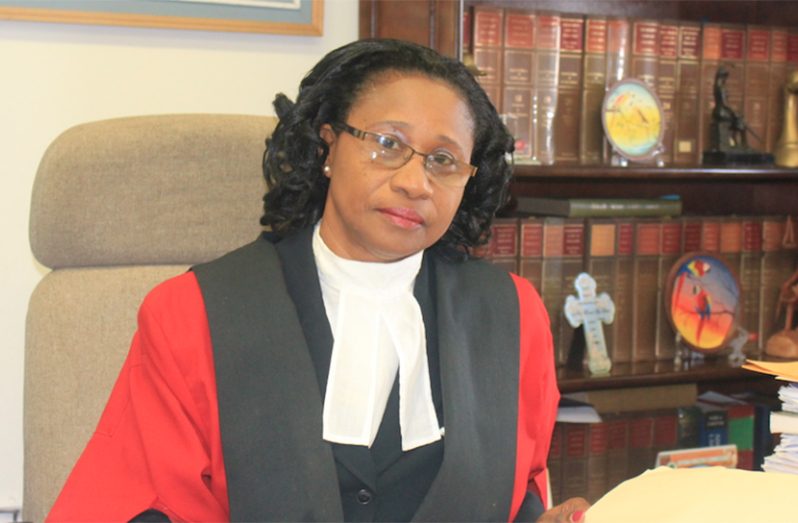-Chancellor underscores importance of media reporting
THE public’s trust in the judicial system cannot be overlooked as it plays a fundamental role in fostering transparency and accountability. In this regard, Chancellor of the Judiciary (ag), Justice Yonette Cummings-Edwards, has emphasised that the judiciary is not above the law and is here to serve the public.
The media shapes much of the public perceptions of the judiciary and Justice Cummings-Edwards, during a press engagement on Saturday at Cara Lodge, highlighted the importance of the media.
The Judiciary of Guyana, in collaboration with the Guyana Press Association (GPA), hosted the press engagement and it focused on ‘promoting public trust and confidence through improved access to information, and reliable and responsible reporting.’
During her keynote remarks, the Chancellor said that the media, in its varied forms, is now an “inescapable” part of life and, more so, it can advocate for social change.
“Needless to say your words, your writing, have a lasting impact,” the Chancellor stated.
She pointed out that the media’s crucial relationship with the state and society has unique consequences for law, politics, economics, culture, and overall, every sphere of society.
Justice Cummings-Edwards then touched on balanced reporting, which, according to her, carries all of the facts and brings out the truth in the stories.
“You members of the media cannot, therefore, and must not put your light under a bushel. That is, you have to keep your good qualities and abilities always to the fore, do not make it a secret or hide it from others, what we know in the legal profession, [is] that what you do is important,” the Chancellor said.
She reminded media personnel of their constitutional rights. Referring to Article 40, the Chancellor explained that it provides for the protection of one’s fundamental rights and freedoms, subject to limitations. She noted that it is designed to ensure that the enjoyment of the said rights and freedoms by an individual does not prejudice the rights and freedoms of others or the public interest.
More specifically, she touched on Freedom of Expression within Article 146, which states that no one may be prevented from exercising their right to free expression unless they give their own agreement.
She did point out, though, that the freedom of expression discussed in this article does not apply to hate speech or any other kind of statement that could incite animosity or animosity towards any individual or group of individuals.
“The court itself, what we portray is for the public. We are here to serve the public. We are not above the law and you have a right of access to information with what’s going on in the court, subject to the limitations where the law prohibits restrictions of certain matters.
“The other thing with journalists and the media, in the right to report, judicial proceedings, stems from the necessity of transparency and accountability. We are accountable to the public. We are, as I said before, we are not a law unto ourselves. And one way in which the public could get to know what we are doing as judicial officers is through the reporting of cases.”
While emphasising that open justice is practised within the courts, the Chancellor said that the judiciary depends on the media. However, while the courts are open to criticism, Justice Cummings-Edwards asked for the criticisms be fair and constructive.


.jpg)











